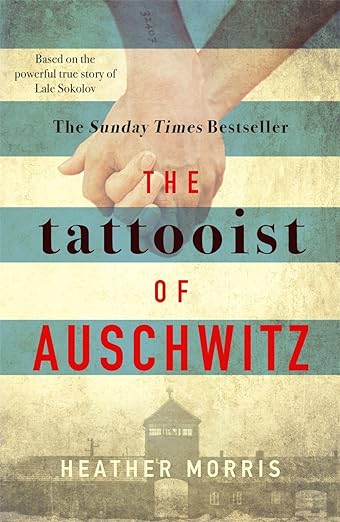Blurb:
A tale based on interviews that were conducted with Holocaust survivor and Auschwitz-Birkenau tattooist Ludwig (Lale) Sokolov.
In April 1942, Lale Sokolov, a Slovakian Jew, is forcibly transported to the concentration camps at Auschwitz-Birkenau. When his captors discover that he speaks several languages, he is put to work as a Tätowierer (the German word for tattooist), tasked with permanently marking his fellow prisoners.
Imprisoned for over two and a half years, Lale witnesses horrific atrocities and barbarism—but also incredible acts of bravery and compassion. Risking his own life, he uses his privileged position to exchange jewels and money from murdered Jews for food to keep his fellow prisoners alive.
One day in July 1942, Lale, prisoner 32407, comforts a trembling young woman waiting in line to have the number 34902 tattooed onto her arm. Her name is Gita, and in that first encounter, Lale vows to somehow survive the camp and marry her.
My Review:
“The Tattooist of Auschwitz” by Heather Morris intricately weaves a tale of resilience, love, and unimaginable horrors set against the backdrop of one of history’s darkest chapters. Based on interviews with Holocaust survivor Ludwig (Lale) Sokolov, Morris brings to life the gripping story of survival amidst the brutality of Auschwitz-Birkenau.
From the moment Lale is forcibly transported to the concentration camp in 1942, the reader is plunged into a world of unimaginable suffering. Yet, amidst the despair, shines a beacon of hope in the form of Lale’s unwavering love for Gita, a fellow prisoner. Their love story unfolds amidst the horrors of the Holocaust, showcasing the enduring power of love and faith even in the bleakest of circumstances.
Morris masterfully captures the emotional depth of the characters, immersing the reader in their struggles, fears, and ultimately, their triumphs. Through Lale’s eyes, we bear witness to the atrocities and barbarism of the Holocaust, but also to moments of incredible bravery and compassion. His acts of defiance, risking his own life to provide food and aid to his fellow prisoners, underscore the resilience of the human spirit even in the face of unspeakable evil.
The narrative is gripping and poignant, eliciting a range of emotions from heartbreak to hope. Morris’s writing skillfully navigates the delicate balance between capturing the harsh realities of World War II and portraying the enduring power of love and faith. “The Tattooist of Auschwitz” is a poignant reminder of the strength of the human spirit and the capacity for love to transcend even the darkest of times.

